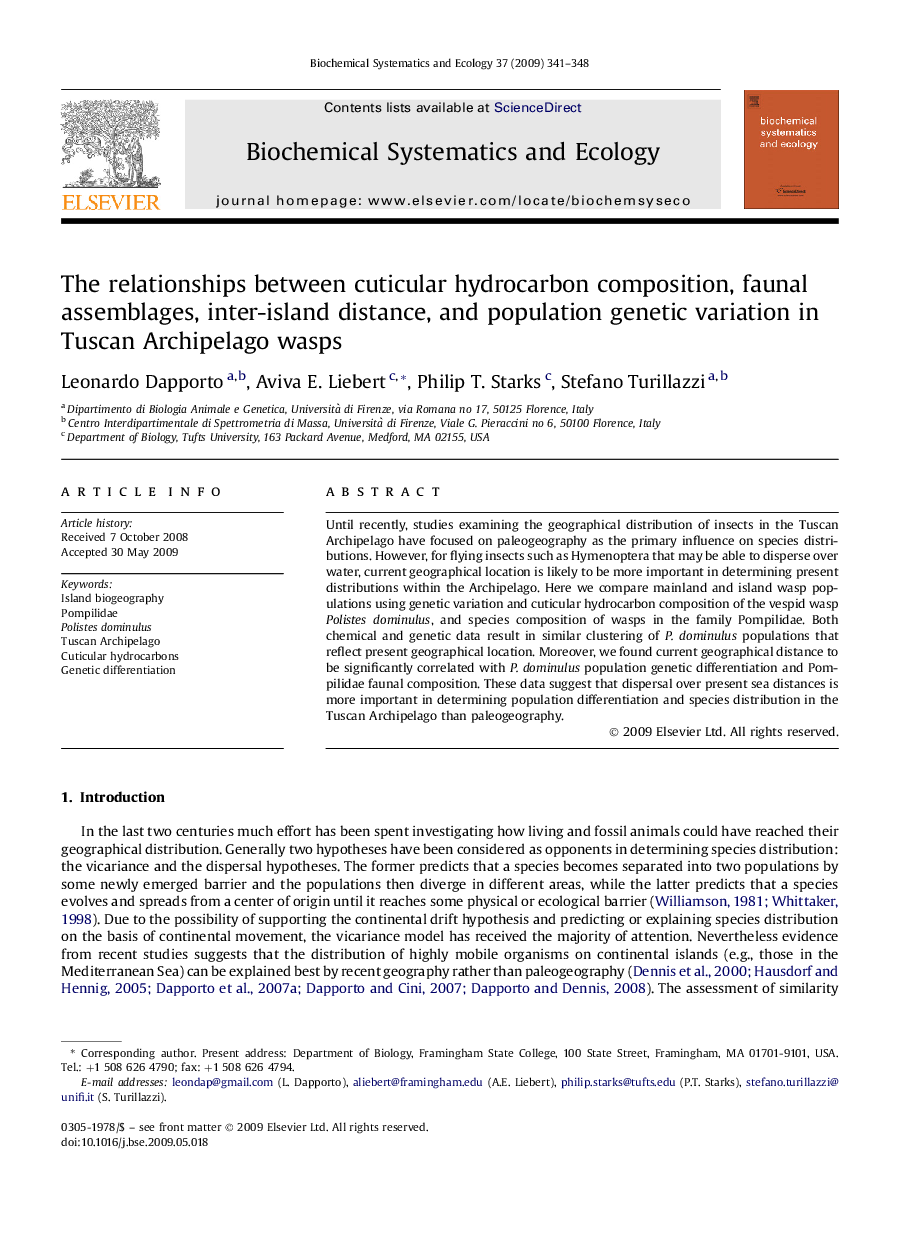| Article ID | Journal | Published Year | Pages | File Type |
|---|---|---|---|---|
| 1352270 | Biochemical Systematics and Ecology | 2009 | 8 Pages |
Abstract
Until recently, studies examining the geographical distribution of insects in the Tuscan Archipelago have focused on paleogeography as the primary influence on species distributions. However, for flying insects such as Hymenoptera that may be able to disperse over water, current geographical location is likely to be more important in determining present distributions within the Archipelago. Here we compare mainland and island wasp populations using genetic variation and cuticular hydrocarbon composition of the vespid wasp Polistes dominulus, and species composition of wasps in the family Pompilidae. Both chemical and genetic data result in similar clustering of P. dominulus populations that reflect present geographical location. Moreover, we found current geographical distance to be significantly correlated with P. dominulus population genetic differentiation and Pompilidae faunal composition. These data suggest that dispersal over present sea distances is more important in determining population differentiation and species distribution in the Tuscan Archipelago than paleogeography.
Related Topics
Physical Sciences and Engineering
Chemistry
Organic Chemistry
Authors
Leonardo Dapporto, Aviva E. Liebert, Philip T. Starks, Stefano Turillazzi,
